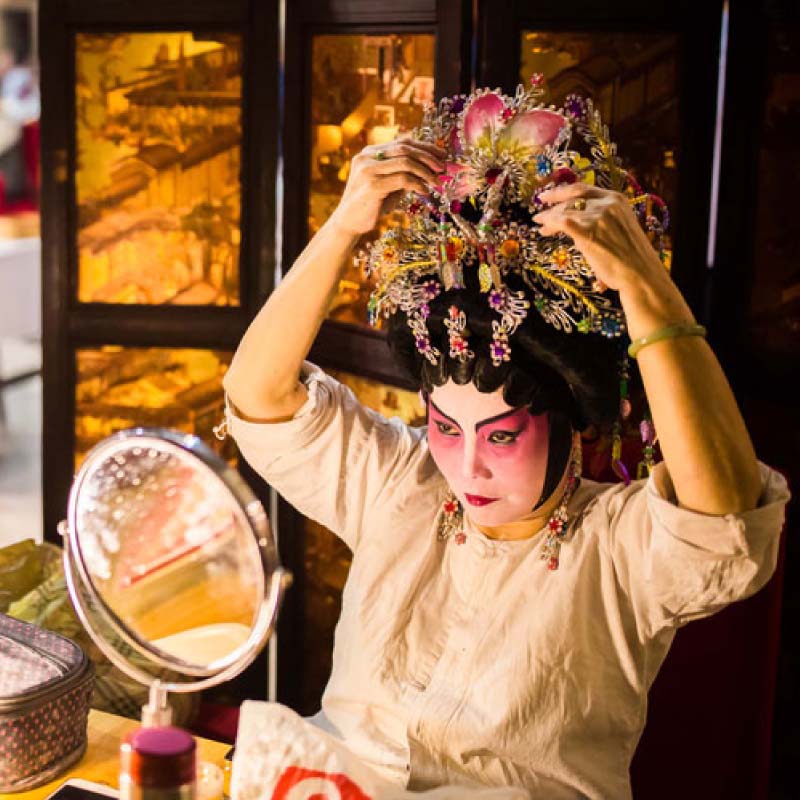On a warm and humid spring day in Southern China’s Guangzhou, a routine performance of the Yueju Opera (粤劇) is staged at the Tongle Restaurant – the only surviving tea house devoted to the traditional performing art form in Guangdong province’s capital city.
When the play reached its climax, some audience members approached the stage and placed tips on the music stand before returning to their seats to continue watching.
Tea houses are the hotbed of time-honored Yueju Opera, or Cantonese Opera, which is rooted in the Cantonese-speaking provincial areas of Guangdong and Guangxi, combining Mandarin operatic traditions and the Cantonese dialect. It is renowned for bold, emotional, and exaggerated expressions, accompanied by Chinese martial arts.
Over the centuries, it has developed a rich repertoire of stories ranging from historical epics to descriptions of daily life. In 2009, it was inscribed in the Representative List of the Intangible Cultural Heritage of Humanity by UNESCO.
However, changing tastes for entertainment may well lead to the traditional opera’s demise. Audiences today are mainly senior citizens.
Local media reports counted over 60 tea houses in Guangzhou during its peak time in the 1980-90s.
Categories
Interest in Cantonese opera wanes
